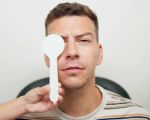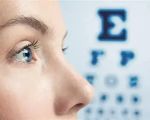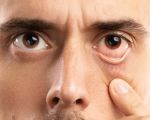
- why-night-vision-declines-with-age–understanding-the-root-causes
- dietary-changes-that-support-night-vision–vitamins-antioxidants-and-hydration
- natural-lifestyle-habits-to-protect-night-sight–rest-light-and-eye-care-routines
- eye-exercises-and-visual-stimulation–how-mental-focus-and-movement-help
- real-case-seniors-who-restored-night-vision–stories-of-small-changes-big-gains
- find-professional-support-with-eye-docs–your-partner-in-natural-eye-health
1. Why Night Vision Declines with Age: Understanding the Root Causes
As we age, many bodily functions change—but few affect independence quite like reduced night vision. For older adults, difficulty seeing in low-light environments isn’t just frustrating; it can be dangerous. Driving at night, navigating dimly lit rooms, or even walking on uneven sidewalks can become anxiety-inducing tasks.
Medically, night vision depends heavily on rod cells in the retina, which help us see in dim light. With aging, these cells become less efficient. Additionally, the eye’s lens thickens and yellows over time, filtering out blue light and reducing contrast sensitivity. This is why finding ways for how to improve night vision in aging adults naturally is more than a curiosity—it’s a necessity for quality of life.
2. Dietary Changes That Support Night Vision: Vitamins, Antioxidants, and Hydration
Nutrition plays a powerful role in maintaining eye health. Aging adults can see marked improvement in their night vision by focusing on specific vitamins and nutrients that nourish the retina and reduce oxidative stress.
Vitamin A is perhaps the most crucial—it's essential for the production of rhodopsin, the pigment that helps eyes adapt to darkness. Carrots, sweet potatoes, spinach, and liver are excellent sources. Equally important are lutein and zeaxanthin, two antioxidants that protect the retina from light damage. You’ll find them in kale, eggs, and corn.
Omega-3 fatty acids, found in fatty fish like salmon, promote fluid drainage and may reduce the risk of macular degeneration. Hydration is also key—dehydrated eyes are more prone to fatigue and irritation, which affects nighttime clarity.
3. Natural Lifestyle Habits to Protect Night Sight: Rest, Light, and Eye Care Routines
Small daily habits can have a lasting effect on visual performance. Proper sleep ensures your eyes rest and regenerate, which is especially important for seniors. Aim for 7–8 hours per night, and avoid screens an hour before bed to reduce blue light strain.
Controlling your light exposure during the day helps regulate melatonin production, which also affects how your eyes adapt in the dark. Get regular daylight exposure, but avoid staring into harsh light without protection. At night, dim your lights gradually instead of suddenly transitioning into darkness—this trains your eyes to adjust more smoothly.
Avoiding smoking, wearing UV-blocking sunglasses during the day, and managing blood sugar are additional ways to slow degeneration. Many seniors also benefit from using warm compresses to increase circulation in the eye area, relieving dryness that can distort night vision.
4. Eye Exercises and Visual Stimulation: How Mental Focus and Movement Help
Just like any other muscle group, the eyes respond to movement and focused use. While no exercise will replace a good diet or proper lighting, certain visual practices can improve flexibility and reactivity—especially when performed regularly.
Try "palming" (cupping your hands gently over closed eyes) to relieve tension and refocus. Other exercises include focusing on a near object, then a distant one, repeatedly, to train accommodation. Light-to-dark adaptation drills—where you spend brief periods transitioning between different brightness levels—can help speed up your natural adjustment reflex.
Cognitive stimulation also supports vision. Puzzles, reading under soft lighting, and visual memory games keep the brain engaged with the visual system, especially in aging populations.
5. Real Case: Seniors Who Restored Night Vision – Stories of Small Changes, Big Gains
Take the example of 74-year-old Grace from Oregon. She began experiencing trouble driving at night, with headlights creating halos and blurry shadows. After visiting a vision specialist and adjusting her diet to include more leafy greens, oily fish, and daily hydration, she noticed gradual improvement. She also began doing 5-minute daily eye drills and reduced screen time after dusk.
Another inspiring story is from Harold, a retired firefighter in New York. With fading night vision threatening his evening volunteer work, he made a series of changes: started wearing blue-light glasses, took a lutein supplement, and replaced home lighting with warmer bulbs. Within 6 weeks, he could walk his dog after sundown with more confidence.
These stories remind us that natural improvement isn’t about perfection—it’s about progress. When consistently applied, even small steps can lead to noticeable results.
6. Find Professional Support with Eye Docs: Your Partner in Natural Eye Health
If you're concerned about declining night vision, don't wait until it limits your life. At Eye Docs, we connect you with trusted eye care professionals who specialize in both traditional and natural solutions for aging vision. Whether it’s a customized supplement plan, lifestyle coaching, or diagnostic tools to track retinal health, our experts can guide you step by step.
We believe that improving night vision naturally isn't just a dream—it’s a science-supported, client-proven reality. Let Eye Docs help you see the path forward, one clear night at a time.








